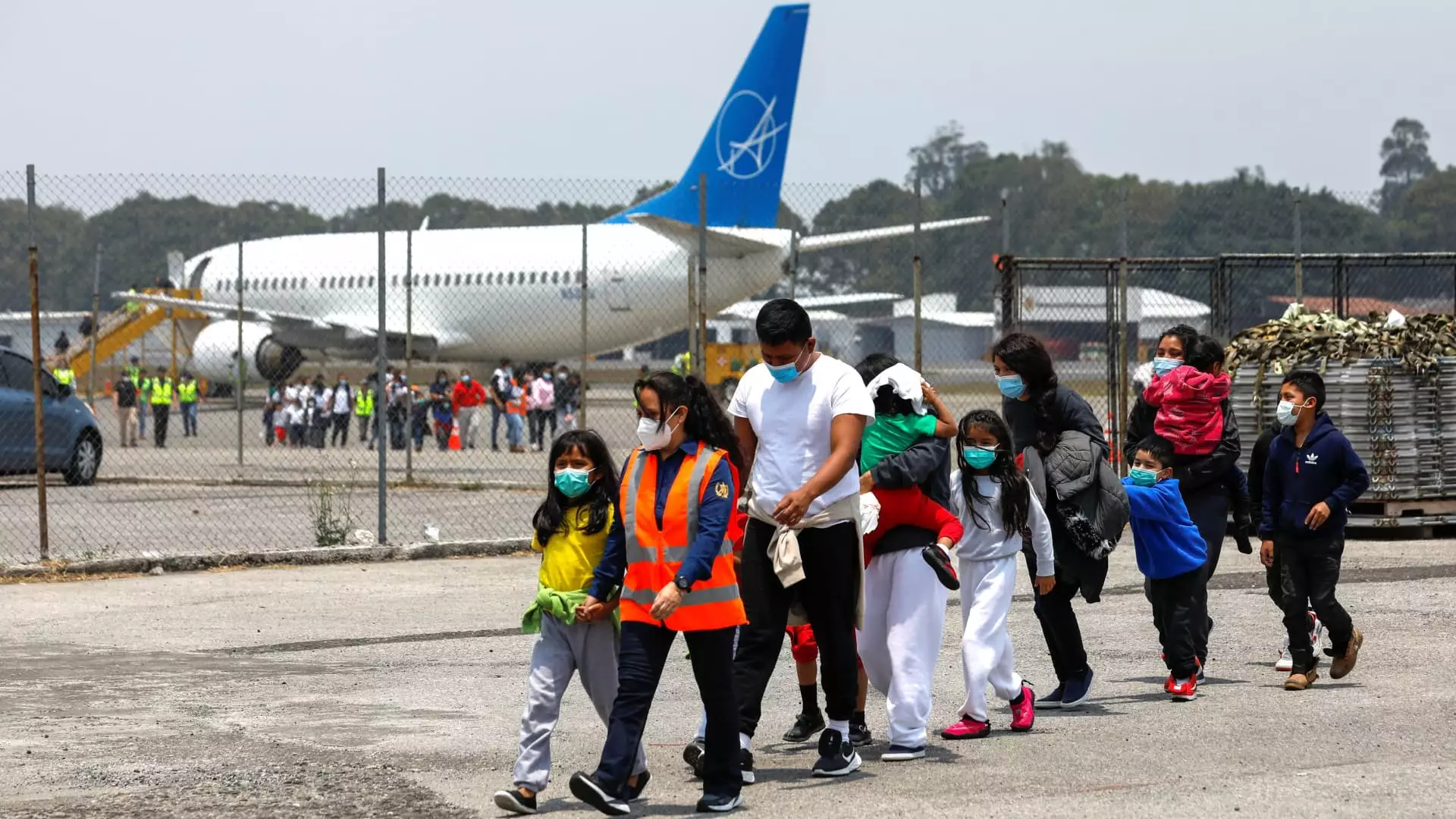The recent ruling by U.S. District Judge Brian Murphy serves as a glaring indictment of an immigration system marred by negligence and systemic flaws. Judge Murphy’s intervention, prompted by the Trump administration’s mishandling of the case involving O.C.G., a gay Guatemalan man, raises serious questions about the integrity and morality of the current policies in place. Deported to Mexico, where he had previously suffered horrific violence, O.C.G. represents an alarming reality faced by countless vulnerable migrants whose lives are treated as mere statistics within an oppressive immigration framework.
It is disheartening to observe how easily lives can be uprooted without proper care for individual circumstances, revealing a troubling trend within the administration that prioritizes expeditious deportations over nuanced assessments of asylum claims. The Justice Department, after acknowledging the miscommunication about O.C.G.’s fears for his safety, must now contend with the ramifications of their hasty and insufficient procedural actions. As Murphy aptly noted, errors do occur; however, the magnitude of the mistakes in O.C.G.’s case is emblematic of a larger system that appears to operate without moral compass or accountability.
Human Rights Violations Under the Guise of Policy
O.C.G.’s plight illustrates the broader implications of the administration’s hardline immigration stance, which has been widely criticized for knowingly endangering vulnerable populations. The alarming admission by the Justice Department—namely, that no Immigration and Customs Enforcement (ICE) officer could substantiate inquiries into O.C.G.’s wellbeing—stands as a stark reminder that due process in immigration cases is often treated as a secondary concern. Instead of rigorously evaluating each case on its merits, the administration seems to favor a draconian approach that neglects the critical needs for humanitarian safeguards, particularly for individuals like O.C.G., who risk their lives in search of safety.
In his ruling, Judge Murphy openly condemned this lack of procedural integrity, likening the situation to a “horror,” which underscores the urgent need for a comprehensive reevaluation of the deportation process. The stories of individuals like O.C.G. are not anomalies; they highlight alarming patterns of systemic failures that perpetuate human rights violations under the façade of immigration policy. How can a nation priding itself on democratic values reconcile its actions with the cruelty exemplified in cases such as these?
The Disturbing Recurrence of Administrative Error
Judge Murphy’s intervention doesn’t exist in isolation but rather as part of a broader tapestry of similar incidents where mismanagement has resulted in severe consequences for immigrants. The case of Kilmar Abrego Garcia, mistakenly deported to El Salvador despite protections, echoes a horrifying cycle of errors that reveals a persistent negligence within the Department of Homeland Security. In an era where due diligence should be the bare minimum, such blunders reflect an unsettling aspect of a system purportedly dedicated to the rule of law and human dignity.
The horror stories don’t end with these two men—each case that surfaces in the shadows highlights an urgent need for comprehensive immigration reform. The lack of accountability among ICE and the Department of Homeland Security necessitates transparency in their operations and a commitment to upholding the human rights of individuals, not managing numbers with zero regard for individual circumstances. Each deportation isn’t just a statistic; it’s a potential death sentence for someone who may be returned to an environment fraught with danger, violence, or persecution.
Seeking Justice Amidst Shadows
As we acknowledge the vast cracks within the immigration system, there is a glimmer of hope found in Judge Murphy’s decisive order and the persistent efforts of legal advocates. Organizations like the National Immigration Litigation Alliance are instrumental in promoting justice and eliciting systemic change, but the road ahead remains fraught with obstacles.
The legal team representing O.C.G. showed remarkable resilience in challenging a bureaucratic system that often renders the voices of migrants silent. This underscores a crucial point: the power of advocacy. It’s an undeniable truth that systemic change often begins at the grassroots level, fueled by individuals and organizations willing to fight for those rendered invisible. O.C.G.’s longing for safety, dignity, and justice embodies the broader struggle for human rights within the immigration framework desperately needing reform and accountability.
Thus, while the ruling may provide some relief for O.C.G. and his supporters, it simultaneously presents a rallying cry for advocacy, reflecting a broader moral obligation to ensure that no individual ever has to navigate this tormenting maze of bureaucratic negligence again. Being complicit in a flawed system doesn’t merely mean endorsing policy; it means failing individuals like O.C.G. who desperately seek refuge and a place they can safely call home.


Leave a Reply